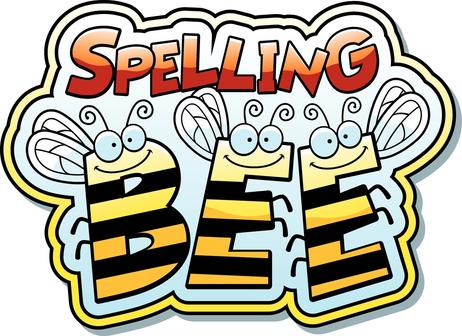Every year thousands of American schoolchildren compete in school spelling bees. Kids in grades three to eight compete to spell increasingly challenging words in a tradition that is nearly as old as the U.S. education system itself. School spelling bee winners typically go on to regional spelling bee, which, in turn, funnel winners to the Scripps National Spelling Bee, held each spring in Washington, DC. Top spellers can earn tens of thousands of dollars in prizes and scholarship money.
Being a spelling bee champ takes more than luck. And, while children who are avid readers and who show skills in writing and reading comprehension usually do well, the most successful competitive spellers have identified some “tricks of the trade” that have helped them achieve the top prize in spelling.
This video offers some spelling bee tips and tricks.
Look at Other Languages
Top spellers study with a purpose. English is a unique language because many English words originated in other languages. The most successful spellers focus their study efforts on learning important foreign language root words and spelling conventions. Here are some of the languages that have most influenced English as well as spelling tips and examples from each language:
Latin
Latin has been the most influential language in English. Words related to science and medicine are often based on Latin words. To help spell Latin words, remember a few simple rules. First, the u sound, as in ooze or school, is almost always spelled with a u, and not two o’s, as in the word bugle. Second, the letter K is very rare in Latin, which means the K sound is almost always spelled with C, rather than K, or CK. Finally, the letter X in Latin words often is pronounced with the sound of gz, as in exuberant. Some familiar Latin-origin words include:
- refugee
- dissect
- opera
- simile
- interrupt
- mediocre
Arabic
Arabic words are more recent additions to English. They are either “loan words” or Arabic words that are used because no English equivalent exists, or the words entered the language as part of other languages. In Arabic spelling, the long e sound (bee) is often spelled with an i, as in safari. Double consonants are common in Arabic words, especially in the middle of the word as in cotton, mummy, or henna. Remembering that these are Arabic words makes it easier to remember the spelling. Some familiar Arabic-origin words include:
- monsoon
- gazelle
- lilac
- sugar
- algebra
- mosque
French
In 1066 AD the French invaded England. The rest, as they say, is history. Seriously – since the conquest of 1066 many, many French words have entered English. There are some spelling conventions that can be helpful in learning French-origin words. A common sound in French as the azh sound, as in garage, mirage, and collage. Notice that the azh sound is spelled –age. A k sound at the end of a French word is usually spelled –que, as in boutique or physique. In French, the sh sound is almost always spelled ch, as in crochet. Some familiar French words include:
- denture
- beige
- suave
- foyer
- rouge
- elite
German
English and German have the same grandparents in the language family tree. As a result, there are some sounds and spellings that will look familiar. There are, however, some spelling differences that competitive spellers keep in mind. For example, the letter z is more common in German than in English and it is not always pronounced as z. In the words pretzel and seltzer, for example, z sounds like s. The sh sound in German words is usually spelled sch, and, probably the most confusing, the letter w is pronounced v in German. Some familiar German words include:
- waltz
- noodle
- bagel
- streusel
- glitz
- cobalt
Greek
Greek is an ancient language and was used by the earliest scientists and philosophers. As a result, there are many Greek words still used in English. The sound of “f” is often spelled “ph” in Greek, as in photo and metaphor. The short “I” sound is often spelled with “y” in Greek, as in “syntax” or “cryptic.” Some familiar Greek words include:
- homonym
- sphere
- metamorphosis
- analysis
- thermal
- rhinoceros
Get to the Root of the Problem
While studying the loan word from many different languages, pay close attention to the roots, or word parts that are common from those languages. For example, the Greek root, “tele” means at a distance, and is part of several different words like telephone, television, and telegram. Learning to spell the root can help you spell unfamiliar words that begin with the same sound.
Study Every Day
It takes weeks of preparation to be ready to compete in a school-wide or regional spelling bee. Sometimes the organizers of the bee will provide contestants with a word list, but that is not usually the case. Use the internet to find lists of words used in past spelling bees and spelling lists for several grades. Practice spelling the words and recognizing the patterns of spelling in different kinds of words. Use the dictionary to identify the country of origin, which can help determine spelling (see above).
Flashcards are your Friends
The 2012 winner of the National Spelling Bee used a stack of over 30,000 flashcards to help her memorize the spelling of tricky words. Organize studying so that the words missed most often go on the flashcards with pronunciation cues. Remember, also, it is important to know how a word should be pronounced. Imagine hearing the word “phone,” pronounced with the “f” sound at the beginning, but having studied it with the wrong pronunciation (p-h). There is no way a speller can advance to the top competitions without knowing how challenging words sound as well as how they are spelled.
This video describes an app which you can use to help prepare for a spelling bee.
Track New Words
Spelling bee champs use a lot of different methods to keep track of tricky or interesting words. Start a spelling journal, and write down words that use challenging word groupings, or that sound like other words. Write the pronunciation next to each word so you can ask friends to quiz you. Keep the journal close and jot down words you see in your reading or hear on television.
Play a Game
Preparing for a spelling bee doesn’t have to be all work and no play. Games like Scrabble or Words with Friends are a great way to practice spelling. Using apps or computer game versions make it possible to practice spelling out words even when you’re alone. Keep in mind, however, that you don’t get the opportunity to hear a word when you’re playing scrabble, so be sure to make time to practice with another person who can pronounce the words for you.
Write on your Hand
Even the most studied and practiced spellers can have trouble spelling out loud. Not seeing the letters makes it difficult to recall which letters come next and what “looks right.” Many successful championship spellers draw each letter with a finger traced on the palm of the hands before answering. The physical motions will help a speller recall letters, especially with tricky words.
Banish Stage Fright
Once a speller wins her classroom bee, she’ll have to face spelling in front of larger and larger audiences. One way to overcome stage fright is to practice with family and friends. Go through the motions of a large spelling bee. Ask a family member to pronounce words and step up to an imaginary microphone before spelling. Practicing even these small details can help overcome nerves and help the speller be more comfortable speaking in front of people – a key skill for a major spelling bee.
This video shows you how to prepare for a spelling bee.
Take Setbacks in Stride
Winning a place in a school-wide or regional spelling bee is an important accomplishment. Enjoy and learn from the experience. Many national championship-winning spellers made it to the Scripps National Spelling Bee several times before they finally won. Some had set-backs in early rounds, or even missed words in regional or classroom bees a few times before making it. The good news is that being a spelling bee champ is an achievable goal, and setbacks can be overcome with study and practice.
To be a spelling bee champ, set a purpose, make a plan to study, pay attention to new words, and practice, practice, practice.
Questions? Contact us on Facebook. @publicschoolreview













